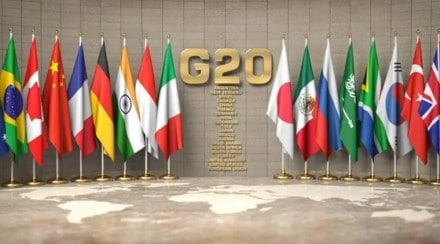In a discussion regarding the nation’s next diplomatic initiative, Arjun Goswami, Director – Public Policy, Cyril Amarchand Mangaldas, told FinancialExpress.com’s Shaleen Agrawal and Zoya Springwala that India is well-positioned to hold the G20 presidency. He adds that India taking over the G20 presidency from Indonesia stands to gain – as the fastest-growing economy in the world, a changing global order, and a developing digital infrastructure are facets that could boost the country’s agenda.
India’s G20 Presidency
“India is assuming the presidency of G20 for the next one year. For India it’s hugely significant, but I think it’s very significant, not just for India, it’s significant globally,” said Goswami. He adds, “India’s balancing role is ideally suited to what G20 needs right now. It cannot succeed with a country that is a firm advocate of one camp or another, it needs a country that has a relationship all around and can make it work across those countries and across those parties.”
Instead of furthering her own agenda, Goswami believes that the country is looking at the presidency unselfishly, especially in underlying areas that India can contribute to and support; there is no impetus to act solely in self-interest. India should focus its attention on three key areas during the meetings: Digital economy, cryptocurrency and a strong trade system.
What India should focus on
The need for digital public goods to act as an underlying support structure would be extremely significant for India. This would allow increased connectivity between economies, financial flows and regulatory systems. The second area of focus should be cryptocurrency regulation, especially since the sector carries significant risk which needs to be addressed and mitigated in the most effective way possible. Further, Goswami said that India should pay particular attention to rebuilding the architecture of the current trade system, so the country can maximise its benefits.
Is the G20 truly effective?
While there are deep pessimists about the G20 who believe that the forum’s high water mark was navigating the global financial crisis in 2008, there are some people who simply celebrate the fact that meetings occur. Arjun Goswami says his view falls in the middle ground. He admits there are certain problems for the G20 that shouldn’t be swept under the rug, such as the Ukraine-Russia war which impact the sessions. However, these crises are the driving force behind the existence of the Group, navigating these issues is precisely why the G20 is required.
